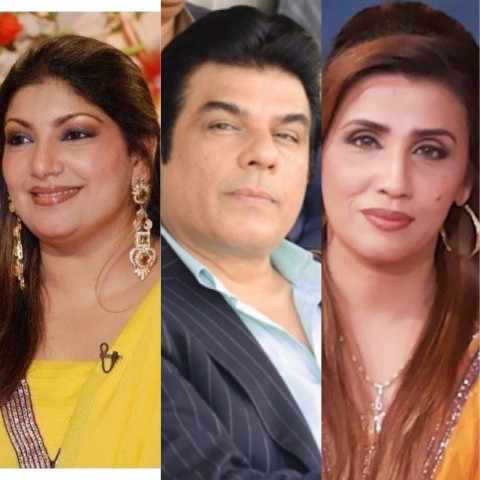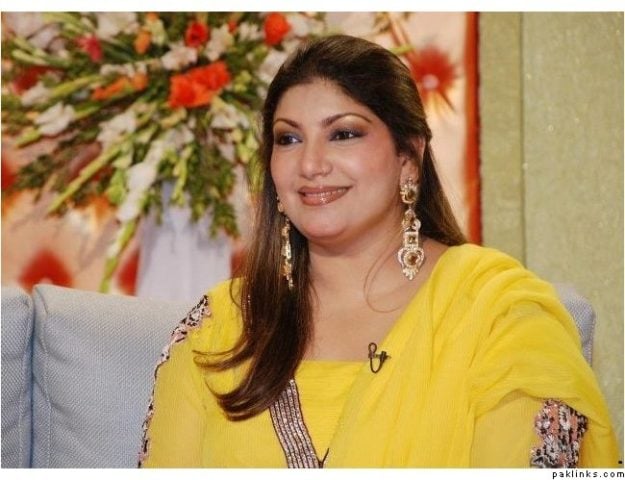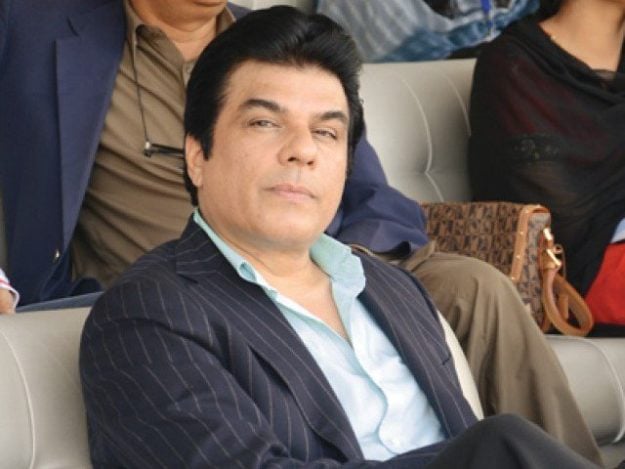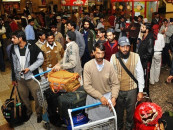The fading out of Lollywood’s iconic playback singers
Saira Naseem, Waris Baig, Humaira Channa, Shazia Manzoor and Humaira Arshad are among those nowhere to be seen now

Nowhere to be seen now, PHOTOS: File
The vacuum left by the film music composers of Lollywood was naturally filled by the country's pop musicians and bands. As a result that, the Asrars, Shiraz Uppals and Zeb Bangashs started ruling the airwaves instead of someone, whose voice would only be associated with the silver screen.
 Saira Naseem. PHOTO: File
Saira Naseem. PHOTO: FileThis major shift has not gone down too well for veteran Lollywood crooners. Names like Saira Naseem, Anwar Rafi, Waris Baig, Naseebo Laal, Humaira Channa, Shazia Manzoor and Humaira Arshad are now nowhere to be seen, having gotten little or no work ever since the downfall of Lahore’s film industry. Some of them haven’t been heard of in years and it doesn’t seem like they will be.
“Playback singing in Pakistan has a long history,” Anwar Rafi told The Express Tribune. “In the past, Mehdi Hassan, Mala Begum, Mahnaz, Akhlaq Ahmad, Noor Jehan and Naseem Begum – to name a few – had dedicated their lives to playback singing and played a key role in Lollywood. Even in the 90s, we did our best. But now, we’re all suffering. We have no work!”
Cultural bonds: Pakistani, Afghan singers, musicians enthral audience
There was a time when Lollywood would produce up to 150 films annually, featuring nearly a 1,000 songs which would go on to become super hits. Perhaps that was because Lollywood and Pakistani music were flourishing together.
 Humaira Channa. PHOTO: File
Humaira Channa. PHOTO: FileUnfortunately, the crisis that hit the film industry uprooted the music industry as well. Playback singers, naturally, took a huge blow: no films meant no work and no monetary fulfillment.
“In the 90s, we used to be so busy with recordings that we wouldn’t get any time for ourselves. Now, the same singers are performing at private functions and praying to get work,” shared Saira Naseem. “All of my colleagues now complain about being unemployed. Back in the day, there used to be Eid shows and a generally conducive environment for artistes but there’s nothing left for us anymore.”
 Waris Beyg. PHOTO: File
Waris Beyg. PHOTO: FileAccording to music director Raza Shah, the trend of film music in Pakistan is changing which is why the future of dedicated film singers is in jeopardy. “The tragedy is that films are still being made and around 200 songs are still being recorded, but the public doesn’t remember any of these songs,” he said. “On top of that, our film directors and producers are not trying to make this aspect of the industry better either. Without improving the quality of music, they can never make a good film.”
Lyricist Altaf Bajwa offered a different perspective on the matter. “See, the importance of playback singers will never diminish as we still include songs in our films. But most of these songs are below average and don’t support the films,” he said. “Our mantra was that a film needs about three or four super hit songs to fare well at the box office. But now, playback singing isn’t given as much importance. Maybe filmmakers will realise their mistakes in the future.”
Have something to add to the story? Share it in the comment below.



















COMMENTS
Comments are moderated and generally will be posted if they are on-topic and not abusive.
For more information, please see our Comments FAQ